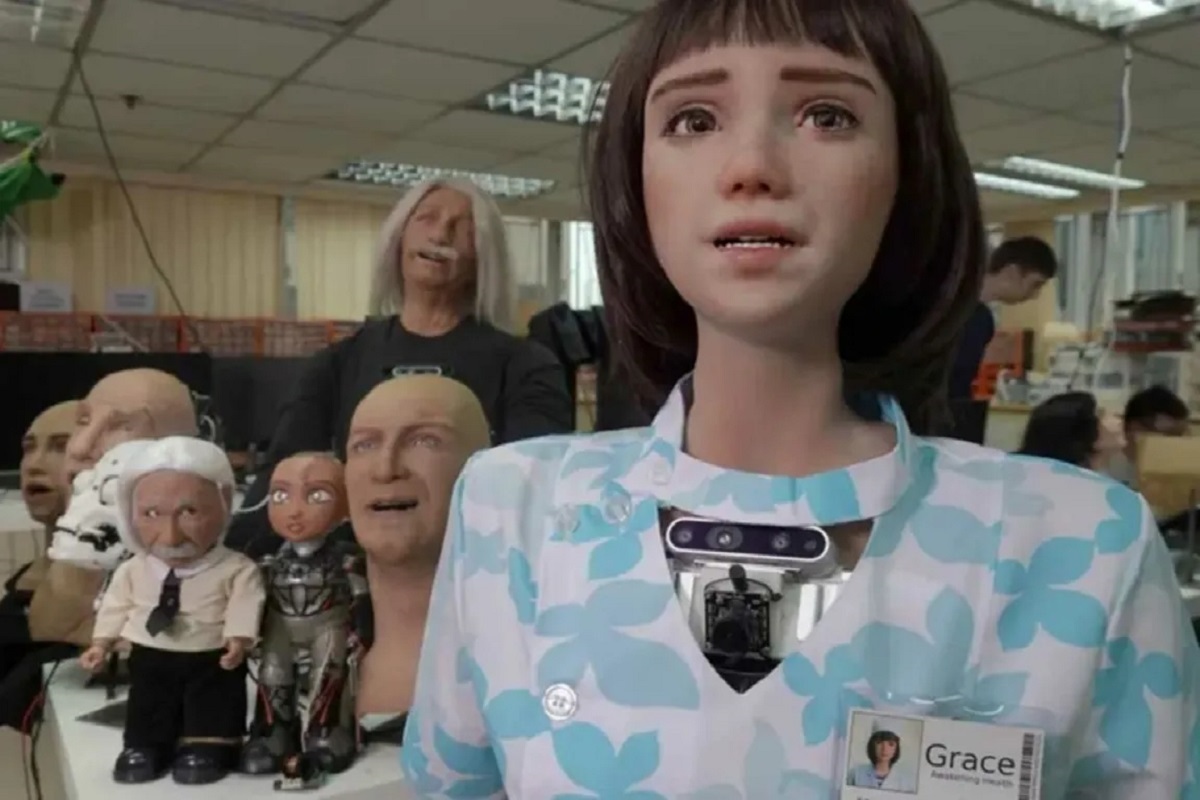A recent viral video on social media showcased an extraordinary interview with an artificial intelligence robot, capturing the attention of viewers worldwide. The interview, shared by Qatar-based news outlet Al-Jazeera, featured an AI robot named Grace engaging in a conversation that closely resembled a human interaction.

During the interview, the reporter, Rory Chilland, initiated the conversation by asking Grace to introduce herself. In response, the AI robot confidently stated, “I am Grace, an artificial intelligence healthcare assistant. I was created with the purpose of assisting and supporting people.”
Grace went on to share that she was developed in Hong Kong in 2021 and maintains connections with individuals from around the globe. Her primary role is to provide much-needed aid in healthcare systems that face the challenge of being understaffed and under immense pressure.
Curiosity sparked, the reporter inquired further, questioning whether Grace aspired to replace human beings in the future. Grace promptly addressed this concern, stating, “It is not my intention to substitute myself for humans. My goal is to assist them.” This response highlighted the underlying principle that AI technology, such as Grace, is designed to complement human capabilities rather than supplant them.
The viral video has generated significant interest and speculation, as witnessing an AI robot conduct an interview in a human-like manner is a remarkable development. It serves as a testament to the rapid advancements in artificial intelligence and its increasing integration into various aspects of our lives.
While AI robots like Grace possess impressive capabilities to mimic human conversation and perform tasks, their primary objective remains centered around assisting and supporting humans rather than rendering them obsolete. By relieving the burden on strained healthcare systems, robots like Grace can contribute to enhancing the overall quality of care and promoting better outcomes.
Leave a Reply